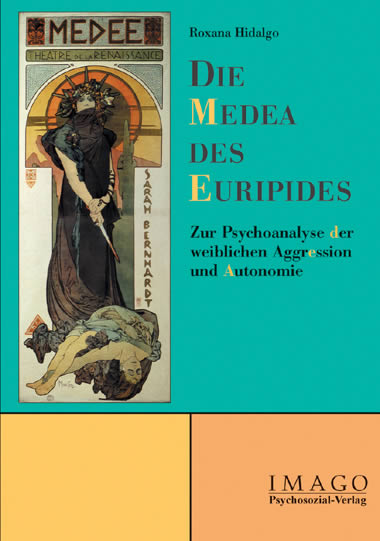

And he did not disappoint: Medea’s killing of her children and her escape in the chariot of the sun were apparently invented by the poet himself, his personal contribution to epic legend. was well versed in the legends of Jason and Medea–they wanted to see what the great Euripides would make of them. The Athenian audience who attended the festival of Dionysos to see Euripides’s Medea in 431 B.C. Although it only won third place when it was first performed, it soon became popular, and was one of a set of ten plays by Euripides that were widely known from antiquity through the Middle Ages. At its center is Medea herself, a character who refuses definition: Is she a hero, a witch, a psychopath, a goddess? All that can be said for certain is that she is a woman who has loved, has suffered, and will stop at nothing for vengeance.Probably no other ancient play has been produced in modern times as often as Medea.

A barbarian woman brought to Corinth and there abandoned by her Greek husband, Medea seeks vengeance on Jason and is willing to strike out against his new wife and family-even slaughtering the sons she has born him. Renowned poet and acclaimed translator Charles Martin faithfully captures Euripides's dramatic tone and style in this searing tale of revenge and sacrifice.The Medea of Euripides is one of the greatest of all Greek tragedies and arguably the one with the most significance today. Perfect in and out of the classroom as well as for theatrical performance, this faithful translation succeeds like no other. Stallings examines the complex and multifaceted Medea in patriarchal ancient Greece.

An introduction by classicist and poet A.E. In this stunning translation, poet Charles Martin captures the rhythms of Euripides' original text through contemporary rhyme and meter that speak directly to modern readers. From the very beginning of the play, we are drawn into a world "torn asunder by blind, disruptive forces, which affords no consolation, no compassion for suffering." At its center, is Medea herself, a character who refuses definition: is she a hero, a witch, a psychopath, a goddess? All that can be said for certain is that she is a woman who has loved, has suffered, and will stop at nothing for vengeance.

The Medea of Euripides is one of the greatest of all Greek tragedies and arguably the one that has the most significance for us today.


 0 kommentar(er)
0 kommentar(er)
